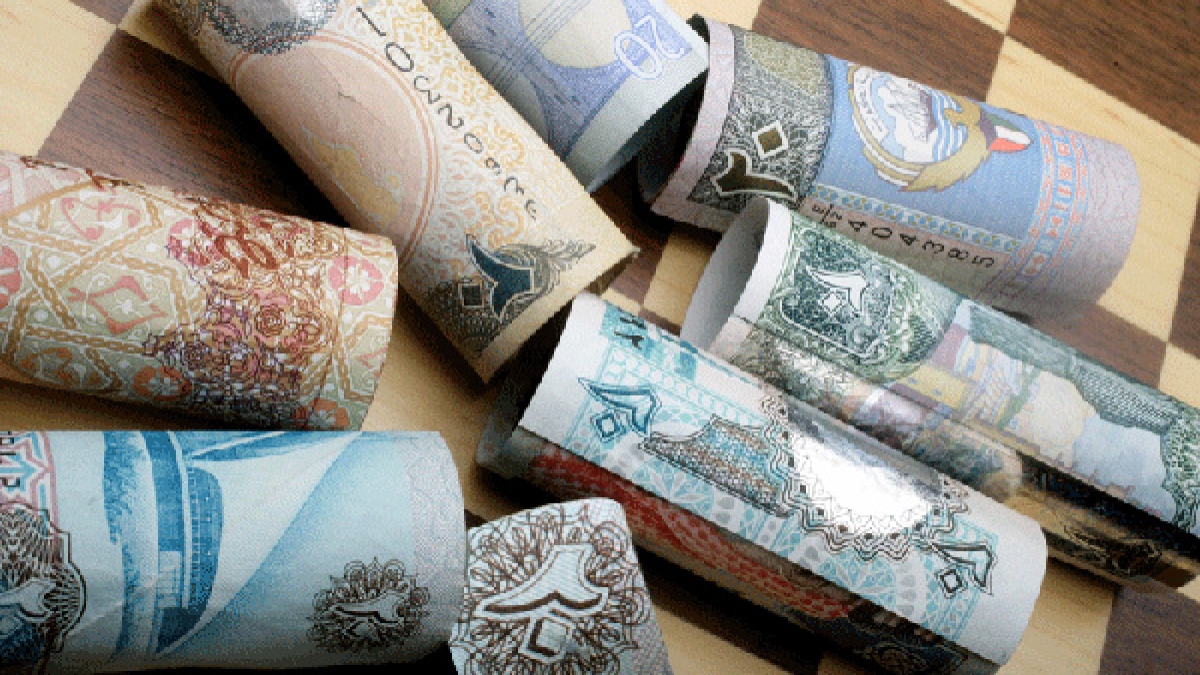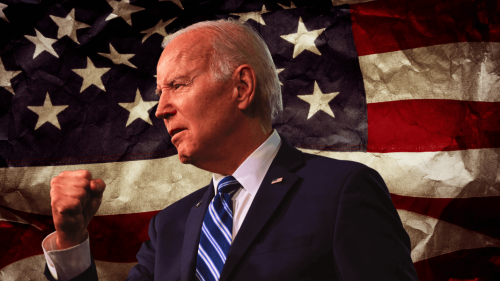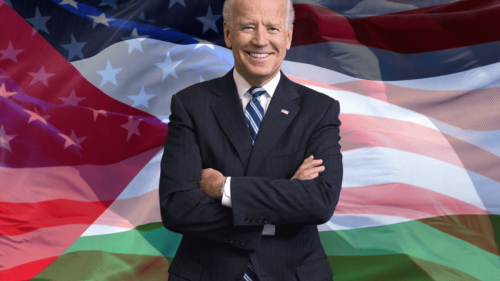a:19:{s:8:"theTitle";s:47:"UN Chief Calls for Arab Unity in Summit Address";s:12:"thePermalink";s:82:"https://www.islamicity.org/101703/un-chief-calls-for-arab-unity-in-summit-address/";s:13:"theAuthorName";s:16:"Antonio Guterres";s:12:"theThumbnail";s:56:"https://img.youtube.com/vi/c9nma--Xs34/maxresdefault.jpg";s:6:"isWhat";s:5:"video";s:7:"theIcon";s:33:"";s:8:"theEmbed";s:43:"https://www.youtube.com/watch?v=c9nma--Xs34";s:11:"theCategory";s:44:"cannot-retrieve-category-see-cell-part-1.php";s:6:"theTag";s:17:"gaza|/topics/gaza";s:7:"theDate";s:11:"May 17 2024";s:11:"theDate_ORG";s:37:"May 17, 2024 {wpcf-soft-date engaged}";s:9:"theAuthor";s:37:"Antonio Guterres|/by/antonio-guterres";s:5:"theID";i:101703;s:14:"theReadingTime";s:6:"8 min.";s:10:"theExcerpt";s:186:"Secretary-General Antonio Guterres reiterated, “Unity and solidarity throughout the Arab world would amplify the vital voice of the region” and further boost its influence on t......";s:12:"theTitle_ORG";s:47:"UN Chief Calls for Arab Unity in Summit Address";s:25:"processRelatedFacetsTitle";s:0:"";s:15:"whereItCameFrom";s:49:"content.php & related posts > post_tag=arab-world";s:8:"theFacet";s:0:"";}
a:19:{s:8:"theTitle";s:48:"Zelensky Out of Office, Netanyahu Out of Options";s:12:"thePermalink";s:82:"https://www.islamicity.org/101693/zelensky-out-of-office-netanyahu-out-of-options/";s:13:"theAuthorName";s:13:"Jeffrey Sachs";s:12:"theThumbnail";s:56:"https://img.youtube.com/vi/B37qz-r-eYs/maxresdefault.jpg";s:6:"isWhat";s:5:"video";s:7:"theIcon";s:33:"";s:8:"theEmbed";s:43:"https://www.youtube.com/watch?v=B37qz-r-eYs";s:11:"theCategory";s:44:"cannot-retrieve-category-see-cell-part-1.php";s:6:"theTag";s:31:"war on gaza|/topics/war-on-gaza";s:7:"theDate";s:11:"May 16 2024";s:11:"theDate_ORG";s:37:"May 15, 2024 {wpcf-soft-date engaged}";s:9:"theAuthor";s:31:"Jeffrey Sachs|/by/jeffrey-sachs";s:5:"theID";i:101693;s:14:"theReadingTime";s:7:"25 min.";s:10:"theExcerpt";s:163:"Judge Andrew Napolitano discusses a provocative speech by Israeli Ambassador to the UN, Gilad Erdan, ahead of a vote on recognizing Palestine as a UN member state.";s:12:"theTitle_ORG";s:48:"Zelensky Out of Office, Netanyahu Out of Options";s:25:"processRelatedFacetsTitle";s:0:"";s:15:"whereItCameFrom";s:49:"content.php & related posts > post_tag=arab-world";s:8:"theFacet";s:0:"";}
a:19:{s:8:"theTitle";s:31:"‘Arab Volcanoes’ Will Erupt";s:12:"thePermalink";s:60:"https://www.islamicity.org/101450/arab-volcanoes-will-erupt/";s:13:"theAuthorName";s:15:"Moncef Marzouki";s:12:"theThumbnail";s:56:"https://img.youtube.com/vi/GMyH7nzksFI/maxresdefault.jpg";s:6:"isWhat";s:5:"video";s:7:"theIcon";s:33:"";s:8:"theEmbed";s:43:"https://www.youtube.com/watch?v=GMyH7nzksFI";s:11:"theCategory";s:44:"cannot-retrieve-category-see-cell-part-1.php";s:6:"theTag";s:23:"tunisia|/topics/tunisia";s:7:"theDate";s:11:"Apr 24 2024";s:11:"theDate_ORG";s:39:"April 24, 2024 {wpcf-soft-date engaged}";s:9:"theAuthor";s:35:"Moncef Marzouki|/by/moncef-marzouki";s:5:"theID";i:101450;s:14:"theReadingTime";s:7:"22 min.";s:10:"theExcerpt";s:186:"In this episode of Centre Stage, the former president of Tunisia, Moncef Marzouki, explains how being a medical doctor has helped shape his political career, and why the Arab Sprin......";s:12:"theTitle_ORG";s:31:"‘Arab Volcanoes’ Will Erupt";s:25:"processRelatedFacetsTitle";s:0:"";s:15:"whereItCameFrom";s:49:"content.php & related posts > post_tag=arab-world";s:8:"theFacet";s:0:"";}
a:19:{s:8:"theTitle";s:21:"Who Made Iran Strong?";s:12:"thePermalink";s:55:"https://www.islamicity.org/101360/who-made-iran-strong/";s:13:"theAuthorName";s:15:"George Galloway";s:12:"theThumbnail";s:56:"https://img.youtube.com/vi/ZZzkruqa66U/maxresdefault.jpg";s:6:"isWhat";s:5:"video";s:7:"theIcon";s:33:"";s:8:"theEmbed";s:43:"https://www.youtube.com/watch?v=ZZzkruqa66U";s:11:"theCategory";s:44:"cannot-retrieve-category-see-cell-part-1.php";s:6:"theTag";s:35:"western world|/topics/western-world";s:7:"theDate";s:11:"Apr 17 2024";s:11:"theDate_ORG";s:39:"April 16, 2024 {wpcf-soft-date engaged}";s:9:"theAuthor";s:35:"George Galloway|/by/george-galloway";s:5:"theID";i:101360;s:14:"theReadingTime";s:6:"3 min.";s:10:"theExcerpt";s:69:"Iran seized the opportunity of the Arab vacuum to become pre-eminent.";s:12:"theTitle_ORG";s:21:"Who Made Iran Strong?";s:25:"processRelatedFacetsTitle";s:0:"";s:15:"whereItCameFrom";s:49:"content.php & related posts > post_tag=arab-world";s:8:"theFacet";s:0:"";}
a:19:{s:8:"theTitle";s:47:"Why the US Continues to Fail in the Arab World?";s:12:"thePermalink";s:81:"https://www.islamicity.org/100326/why-the-us-continues-to-fail-in-the-arab-world/";s:13:"theAuthorName";s:11:"James Zogby";s:12:"theThumbnail";s:71:"https://media.islamicity.org/wp-content/uploads/2024/03/Biden-angry.png";s:6:"isWhat";s:7:"article";s:7:"theIcon";s:0:"";s:8:"theEmbed";s:0:"";s:11:"theCategory";s:44:"cannot-retrieve-category-see-cell-part-1.php";s:6:"theTag";s:57:"united states of america|/topics/united-states-of-america";s:7:"theDate";s:10:"Mar 7 2024";s:11:"theDate_ORG";s:38:"March 6, 2024 {wpcf-soft-date engaged}";s:9:"theAuthor";s:27:"James Zogby|/by/james-zogby";s:5:"theID";i:100326;s:14:"theReadingTime";s:6:"5 min.";s:10:"theExcerpt";s:186:"One week before the October 7th Hamas attack in Israel, President Biden’s National Security Advisor was quoted saying:
“The war in Yemen is in its 19th month of truce, for n......";s:12:"theTitle_ORG";s:47:"Why the US Continues to Fail in the Arab World?";s:25:"processRelatedFacetsTitle";s:0:"";s:15:"whereItCameFrom";s:49:"content.php & related posts > post_tag=arab-world";s:8:"theFacet";s:0:"";}
a:19:{s:8:"theTitle";s:65:"The US Needs to Say “No” to Israel and “Yes” to Palestine";s:12:"thePermalink";s:87:"https://www.islamicity.org/94329/the-us-needs-to-say-no-to-israel-and-yes-to-palestine/";s:13:"theAuthorName";s:11:"James Zogby";s:12:"theThumbnail";s:85:"https://media.islamicity.org/wp-content/uploads/2023/12/USA-support-for-palestine.png";s:6:"isWhat";s:7:"article";s:7:"theIcon";s:0:"";s:8:"theEmbed";s:0:"";s:11:"theCategory";s:44:"cannot-retrieve-category-see-cell-part-1.php";s:6:"theTag";s:29:"arab world|/topics/arab-world";s:7:"theDate";s:10:"Dec 9 2023";s:11:"theDate_ORG";s:41:"December 9, 2023 {wpcf-soft-date engaged}";s:9:"theAuthor";s:27:"James Zogby|/by/james-zogby";s:5:"theID";i:94329;s:14:"theReadingTime";s:6:"5 min.";s:10:"theExcerpt";s:186:"The Biden administration has recently attempted to pivot from its initial unconditional support for Israeli actions in Gaza by combining caution with a vague plan for “the day af......";s:12:"theTitle_ORG";s:65:"The US Needs to Say “No” to Israel and “Yes” to Palestine";s:25:"processRelatedFacetsTitle";s:0:"";s:15:"whereItCameFrom";s:49:"content.php & related posts > post_tag=arab-world";s:8:"theFacet";s:0:"";}
a:19:{s:8:"theTitle";s:51:"Trump's Cabinet: Recipe for All-Out Middle East War";s:12:"thePermalink";s:84:"https://www.islamicity.org/103448/trumps-cabinet-recipe-for-all-out-middle-east-war/";s:13:"theAuthorName";s:12:"David Hearst";s:12:"theThumbnail";s:56:"https://img.youtube.com/vi/DoBalmuWf0A/maxresdefault.jpg";s:6:"isWhat";s:5:"video";s:7:"theIcon";s:33:"";s:8:"theEmbed";s:43:"https://www.youtube.com/watch?v=DoBalmuWf0A";s:11:"theCategory";s:44:"cannot-retrieve-category-see-cell-part-1.php";s:6:"theTag";s:23:"zionism|/topics/zionism";s:7:"theDate";s:11:"Nov 20 2024";s:11:"theDate_ORG";s:42:"November 19, 2024 {wpcf-soft-date engaged}";s:9:"theAuthor";s:29:"David Hearst|/by/david-hearst";s:5:"theID";i:103448;s:14:"theReadingTime";s:7:"11 min.";s:10:"theExcerpt";s:186:"David Hearst, editor-in-chief of Middle East Eye, explains why many young and Arab-American voters turned away from Vice President Kamala Harris in the recent US presidential elect......";s:12:"theTitle_ORG";s:51:"Trump's Cabinet: Recipe for All-Out Middle East War";s:25:"processRelatedFacetsTitle";s:0:"";s:15:"whereItCameFrom";s:49:"content.php & related posts > post_tag=arab-world";s:8:"theFacet";s:0:"";}
a:19:{s:8:"theTitle";s:40:"Israel Under Fire at Arab-Islamic Summit";s:12:"thePermalink";s:75:"https://www.islamicity.org/103358/israel-under-fire-at-arab-islamic-summit/";s:13:"theAuthorName";s:4:"Crux";s:12:"theThumbnail";s:56:"https://img.youtube.com/vi/wRmy_0OCCos/maxresdefault.jpg";s:6:"isWhat";s:5:"video";s:7:"theIcon";s:33:"";s:8:"theEmbed";s:43:"https://www.youtube.com/watch?v=wRmy_0OCCos";s:11:"theCategory";s:44:"cannot-retrieve-category-see-cell-part-1.php";s:6:"theTag";s:23:"lebanon|/topics/lebanon";s:7:"theDate";s:11:"Nov 12 2024";s:11:"theDate_ORG";s:42:"November 11, 2024 {wpcf-soft-date engaged}";s:9:"theAuthor";s:17:"Crux|/source/crux";s:5:"theID";i:103358;s:14:"theReadingTime";s:6:"5 min.";s:10:"theExcerpt";s:186:"State leaders met in Riyadh on Monday (November 11) for an Arab and Islamic summit on the situation in Gaza and Lebanon, with the aim of unifying visions and positions and followin......";s:12:"theTitle_ORG";s:40:"Israel Under Fire at Arab-Islamic Summit";s:25:"processRelatedFacetsTitle";s:0:"";s:15:"whereItCameFrom";s:49:"content.php & related posts > post_tag=arab-world";s:8:"theFacet";s:0:"";}
a:19:{s:8:"theTitle";s:46:"Greater Israel: Plan to Conquer the Arab World";s:12:"thePermalink";s:80:"https://www.islamicity.org/102904/greater-israel-plan-to-conquer-the-arab-world/";s:13:"theAuthorName";s:18:"Break Through News";s:12:"theThumbnail";s:56:"https://img.youtube.com/vi/NEYEcAd-tzQ/maxresdefault.jpg";s:6:"isWhat";s:5:"video";s:7:"theIcon";s:33:"";s:8:"theEmbed";s:43:"https://www.youtube.com/watch?v=NEYEcAd-tzQ";s:11:"theCategory";s:44:"cannot-retrieve-category-see-cell-part-1.php";s:6:"theTag";s:29:"arab world|/topics/arab-world";s:7:"theDate";s:10:"Oct 5 2024";s:11:"theDate_ORG";s:40:"October 4, 2024 {wpcf-soft-date engaged}";s:9:"theAuthor";s:45:"Break Through News|/source/break-through-news";s:5:"theID";i:102904;s:14:"theReadingTime";s:7:"14 min.";s:10:"theExcerpt";s:85:"The idea of "Greater Israel" has resurfaced following a viral Jerusalem Post article.";s:12:"theTitle_ORG";s:46:"Greater Israel: Plan to Conquer the Arab World";s:25:"processRelatedFacetsTitle";s:0:"";s:15:"whereItCameFrom";s:49:"content.php & related posts > post_tag=arab-world";s:8:"theFacet";s:0:"";}
a:19:{s:8:"theTitle";s:45:"Netanyahu Unveils "Greater Israel" Plan at UN";s:12:"thePermalink";s:78:"https://www.islamicity.org/102842/netanyahu-unveils-greater-israel-plan-at-un/";s:13:"theAuthorName";s:16:"Anya Parampil+..";s:12:"theThumbnail";s:56:"https://img.youtube.com/vi/SWjld2FxuRo/maxresdefault.jpg";s:6:"isWhat";s:5:"video";s:7:"theIcon";s:33:"";s:8:"theEmbed";s:43:"https://www.youtube.com/watch?v=SWjld2FxuRo";s:11:"theCategory";s:44:"cannot-retrieve-category-see-cell-part-1.php";s:6:"theTag";s:37:"united nations|/topics/united-nations";s:7:"theDate";s:11:"Sep 30 2024";s:11:"theDate_ORG";s:43:"September 29, 2024 {wpcf-soft-date engaged}";s:9:"theAuthor";s:34:"Anya Parampil+..|/by/anya-parampil";s:5:"theID";i:102842;s:14:"theReadingTime";s:7:"11 min.";s:10:"theExcerpt";s:186:"In a sharp critique of Israeli Prime Minister Benjamin Netanyahu's "deranged" UN General Assembly address, The Grayzone's Max Blumenthal and Anya Parampil dissected his vision for ......";s:12:"theTitle_ORG";s:45:"Netanyahu Unveils "Greater Israel" Plan at UN";s:25:"processRelatedFacetsTitle";s:0:"";s:15:"whereItCameFrom";s:49:"content.php & related posts > post_tag=arab-world";s:8:"theFacet";s:0:"";}
a:19:{s:8:"theTitle";s:77:"The Endgame of Zionism: Confronting a Historical Blunder and Its Consequences";s:12:"thePermalink";s:111:"https://www.islamicity.org/102355/the-endgame-of-zionism-confronting-a-historical-blunder-and-its-consequences/";s:13:"theAuthorName";s:14:"M. Shahid Alam";s:12:"theThumbnail";s:72:"https://media.islamicity.org/wp-content/uploads/2024/08/zionism-camp.jpg";s:6:"isWhat";s:7:"article";s:7:"theIcon";s:0:"";s:8:"theEmbed";s:0:"";s:11:"theCategory";s:44:"cannot-retrieve-category-see-cell-part-1.php";s:6:"theTag";s:17:"iran|/topics/iran";s:7:"theDate";s:10:"Aug 6 2024";s:11:"theDate_ORG";s:39:"August 5, 2024 {wpcf-soft-date engaged}";s:9:"theAuthor";s:32:"M. Shahid Alam|/by/m-shahid-alam";s:5:"theID";i:102355;s:14:"theReadingTime";s:6:"6 min.";s:10:"theExcerpt";s:113:"It is increasingly becoming clear—even to some Western observers—that the Zionist project has run its course.";s:12:"theTitle_ORG";s:77:"The Endgame of Zionism: Confronting a Historical Blunder and Its Consequences";s:25:"processRelatedFacetsTitle";s:0:"";s:15:"whereItCameFrom";s:49:"content.php & related posts > post_tag=arab-world";s:8:"theFacet";s:0:"";}
a:19:{s:8:"theTitle";s:47:"UN Chief Calls for Arab Unity in Summit Address";s:12:"thePermalink";s:82:"https://www.islamicity.org/101703/un-chief-calls-for-arab-unity-in-summit-address/";s:13:"theAuthorName";s:16:"Antonio Guterres";s:12:"theThumbnail";s:56:"https://img.youtube.com/vi/c9nma--Xs34/maxresdefault.jpg";s:6:"isWhat";s:5:"video";s:7:"theIcon";s:33:"";s:8:"theEmbed";s:43:"https://www.youtube.com/watch?v=c9nma--Xs34";s:11:"theCategory";s:44:"cannot-retrieve-category-see-cell-part-1.php";s:6:"theTag";s:17:"gaza|/topics/gaza";s:7:"theDate";s:11:"May 17 2024";s:11:"theDate_ORG";s:37:"May 17, 2024 {wpcf-soft-date engaged}";s:9:"theAuthor";s:37:"Antonio Guterres|/by/antonio-guterres";s:5:"theID";i:101703;s:14:"theReadingTime";s:6:"8 min.";s:10:"theExcerpt";s:186:"Secretary-General Antonio Guterres reiterated, “Unity and solidarity throughout the Arab world would amplify the vital voice of the region” and further boost its influence on t......";s:12:"theTitle_ORG";s:47:"UN Chief Calls for Arab Unity in Summit Address";s:25:"processRelatedFacetsTitle";s:0:"";s:15:"whereItCameFrom";s:49:"content.php & related posts > post_tag=arab-world";s:8:"theFacet";s:0:"";}
a:19:{s:8:"theTitle";s:48:"Zelensky Out of Office, Netanyahu Out of Options";s:12:"thePermalink";s:82:"https://www.islamicity.org/101693/zelensky-out-of-office-netanyahu-out-of-options/";s:13:"theAuthorName";s:13:"Jeffrey Sachs";s:12:"theThumbnail";s:56:"https://img.youtube.com/vi/B37qz-r-eYs/maxresdefault.jpg";s:6:"isWhat";s:5:"video";s:7:"theIcon";s:33:"";s:8:"theEmbed";s:43:"https://www.youtube.com/watch?v=B37qz-r-eYs";s:11:"theCategory";s:44:"cannot-retrieve-category-see-cell-part-1.php";s:6:"theTag";s:31:"war on gaza|/topics/war-on-gaza";s:7:"theDate";s:11:"May 16 2024";s:11:"theDate_ORG";s:37:"May 15, 2024 {wpcf-soft-date engaged}";s:9:"theAuthor";s:31:"Jeffrey Sachs|/by/jeffrey-sachs";s:5:"theID";i:101693;s:14:"theReadingTime";s:7:"25 min.";s:10:"theExcerpt";s:163:"Judge Andrew Napolitano discusses a provocative speech by Israeli Ambassador to the UN, Gilad Erdan, ahead of a vote on recognizing Palestine as a UN member state.";s:12:"theTitle_ORG";s:48:"Zelensky Out of Office, Netanyahu Out of Options";s:25:"processRelatedFacetsTitle";s:0:"";s:15:"whereItCameFrom";s:49:"content.php & related posts > post_tag=arab-world";s:8:"theFacet";s:0:"";}
a:19:{s:8:"theTitle";s:31:"‘Arab Volcanoes’ Will Erupt";s:12:"thePermalink";s:60:"https://www.islamicity.org/101450/arab-volcanoes-will-erupt/";s:13:"theAuthorName";s:15:"Moncef Marzouki";s:12:"theThumbnail";s:56:"https://img.youtube.com/vi/GMyH7nzksFI/maxresdefault.jpg";s:6:"isWhat";s:5:"video";s:7:"theIcon";s:33:"";s:8:"theEmbed";s:43:"https://www.youtube.com/watch?v=GMyH7nzksFI";s:11:"theCategory";s:44:"cannot-retrieve-category-see-cell-part-1.php";s:6:"theTag";s:23:"tunisia|/topics/tunisia";s:7:"theDate";s:11:"Apr 24 2024";s:11:"theDate_ORG";s:39:"April 24, 2024 {wpcf-soft-date engaged}";s:9:"theAuthor";s:35:"Moncef Marzouki|/by/moncef-marzouki";s:5:"theID";i:101450;s:14:"theReadingTime";s:7:"22 min.";s:10:"theExcerpt";s:186:"In this episode of Centre Stage, the former president of Tunisia, Moncef Marzouki, explains how being a medical doctor has helped shape his political career, and why the Arab Sprin......";s:12:"theTitle_ORG";s:31:"‘Arab Volcanoes’ Will Erupt";s:25:"processRelatedFacetsTitle";s:0:"";s:15:"whereItCameFrom";s:49:"content.php & related posts > post_tag=arab-world";s:8:"theFacet";s:0:"";}
a:19:{s:8:"theTitle";s:21:"Who Made Iran Strong?";s:12:"thePermalink";s:55:"https://www.islamicity.org/101360/who-made-iran-strong/";s:13:"theAuthorName";s:15:"George Galloway";s:12:"theThumbnail";s:56:"https://img.youtube.com/vi/ZZzkruqa66U/maxresdefault.jpg";s:6:"isWhat";s:5:"video";s:7:"theIcon";s:33:"";s:8:"theEmbed";s:43:"https://www.youtube.com/watch?v=ZZzkruqa66U";s:11:"theCategory";s:44:"cannot-retrieve-category-see-cell-part-1.php";s:6:"theTag";s:35:"western world|/topics/western-world";s:7:"theDate";s:11:"Apr 17 2024";s:11:"theDate_ORG";s:39:"April 16, 2024 {wpcf-soft-date engaged}";s:9:"theAuthor";s:35:"George Galloway|/by/george-galloway";s:5:"theID";i:101360;s:14:"theReadingTime";s:6:"3 min.";s:10:"theExcerpt";s:69:"Iran seized the opportunity of the Arab vacuum to become pre-eminent.";s:12:"theTitle_ORG";s:21:"Who Made Iran Strong?";s:25:"processRelatedFacetsTitle";s:0:"";s:15:"whereItCameFrom";s:49:"content.php & related posts > post_tag=arab-world";s:8:"theFacet";s:0:"";}
a:19:{s:8:"theTitle";s:47:"Why the US Continues to Fail in the Arab World?";s:12:"thePermalink";s:81:"https://www.islamicity.org/100326/why-the-us-continues-to-fail-in-the-arab-world/";s:13:"theAuthorName";s:11:"James Zogby";s:12:"theThumbnail";s:71:"https://media.islamicity.org/wp-content/uploads/2024/03/Biden-angry.png";s:6:"isWhat";s:7:"article";s:7:"theIcon";s:0:"";s:8:"theEmbed";s:0:"";s:11:"theCategory";s:44:"cannot-retrieve-category-see-cell-part-1.php";s:6:"theTag";s:57:"united states of america|/topics/united-states-of-america";s:7:"theDate";s:10:"Mar 7 2024";s:11:"theDate_ORG";s:38:"March 6, 2024 {wpcf-soft-date engaged}";s:9:"theAuthor";s:27:"James Zogby|/by/james-zogby";s:5:"theID";i:100326;s:14:"theReadingTime";s:6:"5 min.";s:10:"theExcerpt";s:186:"One week before the October 7th Hamas attack in Israel, President Biden’s National Security Advisor was quoted saying:
“The war in Yemen is in its 19th month of truce, for n......";s:12:"theTitle_ORG";s:47:"Why the US Continues to Fail in the Arab World?";s:25:"processRelatedFacetsTitle";s:0:"";s:15:"whereItCameFrom";s:49:"content.php & related posts > post_tag=arab-world";s:8:"theFacet";s:0:"";}
a:19:{s:8:"theTitle";s:65:"The US Needs to Say “No” to Israel and “Yes” to Palestine";s:12:"thePermalink";s:87:"https://www.islamicity.org/94329/the-us-needs-to-say-no-to-israel-and-yes-to-palestine/";s:13:"theAuthorName";s:11:"James Zogby";s:12:"theThumbnail";s:85:"https://media.islamicity.org/wp-content/uploads/2023/12/USA-support-for-palestine.png";s:6:"isWhat";s:7:"article";s:7:"theIcon";s:0:"";s:8:"theEmbed";s:0:"";s:11:"theCategory";s:44:"cannot-retrieve-category-see-cell-part-1.php";s:6:"theTag";s:29:"arab world|/topics/arab-world";s:7:"theDate";s:10:"Dec 9 2023";s:11:"theDate_ORG";s:41:"December 9, 2023 {wpcf-soft-date engaged}";s:9:"theAuthor";s:27:"James Zogby|/by/james-zogby";s:5:"theID";i:94329;s:14:"theReadingTime";s:6:"5 min.";s:10:"theExcerpt";s:186:"The Biden administration has recently attempted to pivot from its initial unconditional support for Israeli actions in Gaza by combining caution with a vague plan for “the day af......";s:12:"theTitle_ORG";s:65:"The US Needs to Say “No” to Israel and “Yes” to Palestine";s:25:"processRelatedFacetsTitle";s:0:"";s:15:"whereItCameFrom";s:49:"content.php & related posts > post_tag=arab-world";s:8:"theFacet";s:0:"";}
a:19:{s:8:"theTitle";s:51:"Trump's Cabinet: Recipe for All-Out Middle East War";s:12:"thePermalink";s:84:"https://www.islamicity.org/103448/trumps-cabinet-recipe-for-all-out-middle-east-war/";s:13:"theAuthorName";s:12:"David Hearst";s:12:"theThumbnail";s:56:"https://img.youtube.com/vi/DoBalmuWf0A/maxresdefault.jpg";s:6:"isWhat";s:5:"video";s:7:"theIcon";s:33:"";s:8:"theEmbed";s:43:"https://www.youtube.com/watch?v=DoBalmuWf0A";s:11:"theCategory";s:44:"cannot-retrieve-category-see-cell-part-1.php";s:6:"theTag";s:23:"zionism|/topics/zionism";s:7:"theDate";s:11:"Nov 20 2024";s:11:"theDate_ORG";s:42:"November 19, 2024 {wpcf-soft-date engaged}";s:9:"theAuthor";s:29:"David Hearst|/by/david-hearst";s:5:"theID";i:103448;s:14:"theReadingTime";s:7:"11 min.";s:10:"theExcerpt";s:186:"David Hearst, editor-in-chief of Middle East Eye, explains why many young and Arab-American voters turned away from Vice President Kamala Harris in the recent US presidential elect......";s:12:"theTitle_ORG";s:51:"Trump's Cabinet: Recipe for All-Out Middle East War";s:25:"processRelatedFacetsTitle";s:0:"";s:15:"whereItCameFrom";s:49:"content.php & related posts > post_tag=arab-world";s:8:"theFacet";s:0:"";}
a:19:{s:8:"theTitle";s:40:"Israel Under Fire at Arab-Islamic Summit";s:12:"thePermalink";s:75:"https://www.islamicity.org/103358/israel-under-fire-at-arab-islamic-summit/";s:13:"theAuthorName";s:4:"Crux";s:12:"theThumbnail";s:56:"https://img.youtube.com/vi/wRmy_0OCCos/maxresdefault.jpg";s:6:"isWhat";s:5:"video";s:7:"theIcon";s:33:"";s:8:"theEmbed";s:43:"https://www.youtube.com/watch?v=wRmy_0OCCos";s:11:"theCategory";s:44:"cannot-retrieve-category-see-cell-part-1.php";s:6:"theTag";s:23:"lebanon|/topics/lebanon";s:7:"theDate";s:11:"Nov 12 2024";s:11:"theDate_ORG";s:42:"November 11, 2024 {wpcf-soft-date engaged}";s:9:"theAuthor";s:17:"Crux|/source/crux";s:5:"theID";i:103358;s:14:"theReadingTime";s:6:"5 min.";s:10:"theExcerpt";s:186:"State leaders met in Riyadh on Monday (November 11) for an Arab and Islamic summit on the situation in Gaza and Lebanon, with the aim of unifying visions and positions and followin......";s:12:"theTitle_ORG";s:40:"Israel Under Fire at Arab-Islamic Summit";s:25:"processRelatedFacetsTitle";s:0:"";s:15:"whereItCameFrom";s:49:"content.php & related posts > post_tag=arab-world";s:8:"theFacet";s:0:"";}
a:19:{s:8:"theTitle";s:46:"Greater Israel: Plan to Conquer the Arab World";s:12:"thePermalink";s:80:"https://www.islamicity.org/102904/greater-israel-plan-to-conquer-the-arab-world/";s:13:"theAuthorName";s:18:"Break Through News";s:12:"theThumbnail";s:56:"https://img.youtube.com/vi/NEYEcAd-tzQ/maxresdefault.jpg";s:6:"isWhat";s:5:"video";s:7:"theIcon";s:33:"";s:8:"theEmbed";s:43:"https://www.youtube.com/watch?v=NEYEcAd-tzQ";s:11:"theCategory";s:44:"cannot-retrieve-category-see-cell-part-1.php";s:6:"theTag";s:29:"arab world|/topics/arab-world";s:7:"theDate";s:10:"Oct 5 2024";s:11:"theDate_ORG";s:40:"October 4, 2024 {wpcf-soft-date engaged}";s:9:"theAuthor";s:45:"Break Through News|/source/break-through-news";s:5:"theID";i:102904;s:14:"theReadingTime";s:7:"14 min.";s:10:"theExcerpt";s:85:"The idea of "Greater Israel" has resurfaced following a viral Jerusalem Post article.";s:12:"theTitle_ORG";s:46:"Greater Israel: Plan to Conquer the Arab World";s:25:"processRelatedFacetsTitle";s:0:"";s:15:"whereItCameFrom";s:49:"content.php & related posts > post_tag=arab-world";s:8:"theFacet";s:0:"";}
a:19:{s:8:"theTitle";s:45:"Netanyahu Unveils "Greater Israel" Plan at UN";s:12:"thePermalink";s:78:"https://www.islamicity.org/102842/netanyahu-unveils-greater-israel-plan-at-un/";s:13:"theAuthorName";s:16:"Anya Parampil+..";s:12:"theThumbnail";s:56:"https://img.youtube.com/vi/SWjld2FxuRo/maxresdefault.jpg";s:6:"isWhat";s:5:"video";s:7:"theIcon";s:33:"";s:8:"theEmbed";s:43:"https://www.youtube.com/watch?v=SWjld2FxuRo";s:11:"theCategory";s:44:"cannot-retrieve-category-see-cell-part-1.php";s:6:"theTag";s:37:"united nations|/topics/united-nations";s:7:"theDate";s:11:"Sep 30 2024";s:11:"theDate_ORG";s:43:"September 29, 2024 {wpcf-soft-date engaged}";s:9:"theAuthor";s:34:"Anya Parampil+..|/by/anya-parampil";s:5:"theID";i:102842;s:14:"theReadingTime";s:7:"11 min.";s:10:"theExcerpt";s:186:"In a sharp critique of Israeli Prime Minister Benjamin Netanyahu's "deranged" UN General Assembly address, The Grayzone's Max Blumenthal and Anya Parampil dissected his vision for ......";s:12:"theTitle_ORG";s:45:"Netanyahu Unveils "Greater Israel" Plan at UN";s:25:"processRelatedFacetsTitle";s:0:"";s:15:"whereItCameFrom";s:49:"content.php & related posts > post_tag=arab-world";s:8:"theFacet";s:0:"";}
a:19:{s:8:"theTitle";s:77:"The Endgame of Zionism: Confronting a Historical Blunder and Its Consequences";s:12:"thePermalink";s:111:"https://www.islamicity.org/102355/the-endgame-of-zionism-confronting-a-historical-blunder-and-its-consequences/";s:13:"theAuthorName";s:14:"M. Shahid Alam";s:12:"theThumbnail";s:72:"https://media.islamicity.org/wp-content/uploads/2024/08/zionism-camp.jpg";s:6:"isWhat";s:7:"article";s:7:"theIcon";s:0:"";s:8:"theEmbed";s:0:"";s:11:"theCategory";s:44:"cannot-retrieve-category-see-cell-part-1.php";s:6:"theTag";s:17:"iran|/topics/iran";s:7:"theDate";s:10:"Aug 6 2024";s:11:"theDate_ORG";s:39:"August 5, 2024 {wpcf-soft-date engaged}";s:9:"theAuthor";s:32:"M. Shahid Alam|/by/m-shahid-alam";s:5:"theID";i:102355;s:14:"theReadingTime";s:6:"6 min.";s:10:"theExcerpt";s:113:"It is increasingly becoming clear—even to some Western observers—that the Zionist project has run its course.";s:12:"theTitle_ORG";s:77:"The Endgame of Zionism: Confronting a Historical Blunder and Its Consequences";s:25:"processRelatedFacetsTitle";s:0:"";s:15:"whereItCameFrom";s:49:"content.php & related posts > post_tag=arab-world";s:8:"theFacet";s:0:"";}
a:19:{s:8:"theTitle";s:47:"UN Chief Calls for Arab Unity in Summit Address";s:12:"thePermalink";s:82:"https://www.islamicity.org/101703/un-chief-calls-for-arab-unity-in-summit-address/";s:13:"theAuthorName";s:16:"Antonio Guterres";s:12:"theThumbnail";s:56:"https://img.youtube.com/vi/c9nma--Xs34/maxresdefault.jpg";s:6:"isWhat";s:5:"video";s:7:"theIcon";s:33:"";s:8:"theEmbed";s:43:"https://www.youtube.com/watch?v=c9nma--Xs34";s:11:"theCategory";s:44:"cannot-retrieve-category-see-cell-part-1.php";s:6:"theTag";s:17:"gaza|/topics/gaza";s:7:"theDate";s:11:"May 17 2024";s:11:"theDate_ORG";s:37:"May 17, 2024 {wpcf-soft-date engaged}";s:9:"theAuthor";s:37:"Antonio Guterres|/by/antonio-guterres";s:5:"theID";i:101703;s:14:"theReadingTime";s:6:"8 min.";s:10:"theExcerpt";s:186:"Secretary-General Antonio Guterres reiterated, “Unity and solidarity throughout the Arab world would amplify the vital voice of the region” and further boost its influence on t......";s:12:"theTitle_ORG";s:47:"UN Chief Calls for Arab Unity in Summit Address";s:25:"processRelatedFacetsTitle";s:0:"";s:15:"whereItCameFrom";s:49:"content.php & related posts > post_tag=arab-world";s:8:"theFacet";s:0:"";}
 {file:content.php} {function:blp_getCustomField} {postID:157} {customField:theClapCount} {default:0}not-in-use-in-plain-child
{file:content.php} {function:blp_getCustomField} {postID:157} {customField:theClapCount} {default:0}not-in-use-in-plain-child

















